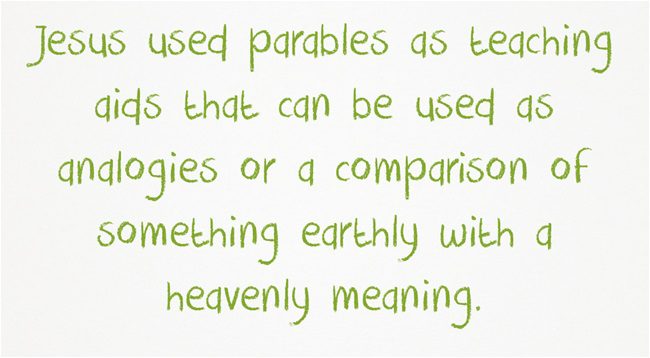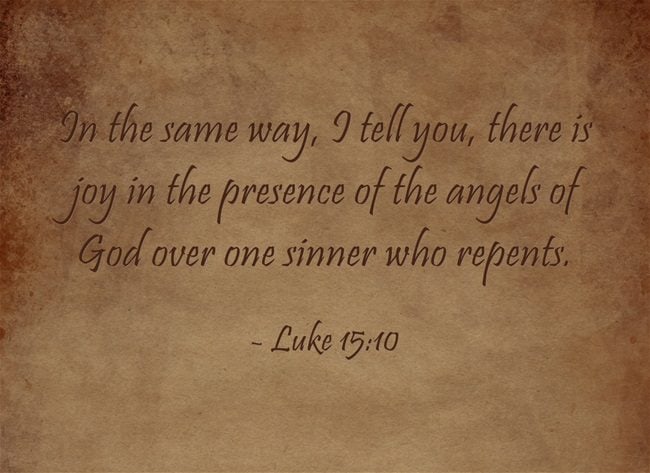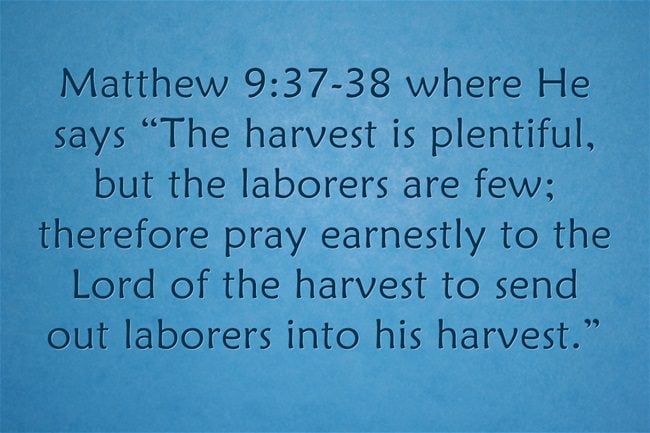The parables are great lessons that we can apply to our own Christian life. Here is a list of the parables in Matthew chapter 13.
What is a Parable and its Purpose?
The Greek word for “parable” is “parabole” and closely resembles that in the Old Testament where the Hebrew word is “masal.” The word “parable” literally means “to cast” (bole) something “alongside” (para) or to “throw to the side” so a parable is a comparison of two or more things that are cast aside something to make a teaching more clear or to reveal what has been hidden. The parable normally teaches one point and is used primarily for a comparison of something familiar with a concept, idea, or teaching of something that may not be otherwise understood. Jesus used parables as teaching aids that can be used as analogies or a comparison of something earthly with a heavenly meaning. At least, that is the way I would suggest that Jesus used parables. Here is a list of parables from Matthew 13 with a brief suggestion of what Jesus was trying to tell the disciples and by extension trying to tell believers today.
Narrowing the List of Parables
I tried to count how many parables there are in the Bible and there are almost fifty in all so that is far too many to include in one article so I decided to limit them to the parables in the Gospel of Matthew in chapter 13. Apparently Jesus loved to use parables because they gave the disciples and they give us a great example on how something that might be overlooked or might be hard to understand could be more easily understood with something or some things that are more familiar to them. The examples that Jesus used might not be as familiar to us as they were to His disciples so sometimes we have to look at the context of Jesus’ teaching in this chapter to see what He is trying to teach them and us. By the way, Jesus used parables to hide the meaning of His teachings to the religious leaders as He said “To you it has been given to know the secrets of the kingdom of heaven, but to them it has not been given. For to the one who has, more will be given, and he will have an abundance, but from the one who has not, even what he has will be taken away. This is why I speak to them in parables, because seeing they do not see, and hearing they do not hear, nor do they understand” (Matt 13:11-13). Here is a list of six parables from the Gospel of Matthew which are concentrated in chapter 13.
The Parable of the Sower (Matthew 13:3-9)
Jesus explained that a certain sower sowed seed and some fell on rocky ground and didn’t take root and the sun withered it and it died. Other seed was sown on ground that had thorns which choked out the seed. Only the seed that was sown on fertile ground took root and produced differing amounts of grain.
There is no need to explain this parable because Jesus explained the meaning Himself by saying “When anyone hears the word of the kingdom and does not understand it, the evil one comes and snatches away what has been sown in his heart. This is what was sown along the path. As for what was sown on rocky ground, this is the one who hears the word and immediately receives it with joy, yet he has no root in himself, but endures for a while, and when tribulation or persecution arises on account of the word, immediately he falls away. As for what was sown among thorns, this is the one who hears the word, but the cares of the world and the deceitfulness of riches choke the word, and it proves unfruitful. As for what was sown on good soil, this is the one who hears the word and understands it. He indeed bears fruit and yields, in one case a hundredfold, in another sixty, and in another thirty.”
The Parable of the Weeds (Matthew 13:24-30)
Jesus explains that there was good seed in the fields but while the man slept, the enemy came in and sowed weed seed among the wheat and they both grew together and when the man’s servants came and told him and asked if they could gather them up the tares the Master said, “No, let them grow together and at the harvest, they will gather the weeds first and bind them into bundles to be burned but the wheat will be gathered into his barn.”
I believe Jesus is saying that today there are many false converts in the church and that they will be allowed to stay in the church but at the Master’s coming, He will separate them and send some to the fire (judgment) and others into the barn (the kingdom). Wheat and tares are hard to tell apart when they have sprouted and even when they are growing but the difference is seen by what they produce. Wheat produces grain (fruits) but weeds produce only more weeds, good only for the burn pile (Matt 13:36-43).
The Mustard Seed and the Leaven (Matthew 13:31-33)
The kingdom is seen as a mustard seed, among the smallest of all but when it’s grown large, it is big enough for birds to nest in its branches. Like the mustard seed, the kingdom of heaven is like leaven which a woman “hid in three measures of flour, till all was leavened.”
The kingdom of heaven began as the smallest of seeds in the 1st century and today is still growing and eventually, will encompass the entire universe (Isaiah 9). Like the leaven, it will continue to leaven or expand into the entire universe as well. I notice that the leaven is like the mustard seed…it begins small but continues to expand. The leaven, like the tares among the wheat, may not be visible to the naked eye but instead, was “hid in three measures of flour” which could mean that the true children of God may not be easily discerned by sight and will not be evident until “all was leavened” or at the coming of the kingdom.
The Parable of the Hidden Treasure (Matthew 13:44)
In this parable, the kingdom is like a treasure that’s been buried and covered up. The man, in his joy, goes and sells all that he has to buy the filed. Is this about Jesus’ selling all He had by giving His life a ransom for many and that the kingdom has been hidden up to the time of Jesus’ ministry and only brought to the surface by the Master who purchased the field with His own blood? Jesus never does explain the meaning of this parable.
The Parable of the Pearl of Great Price (Matthew 13:45-46)
The kingdom resembles a merchant searching for fine pearls and when he finds “the one pearl of great value” he sells everything that He has to purchase it. Again, is this Jesus’ way of saying that He gives all that He has, including His own life, to buy what is beyond what anyone could ever buy on their own? Is this not also referencing Jesus seeking out those who would become the children of God since we know that no one seeks after God (Rom 3:11-12) but the hounds of heaven seek us out (John 6:44) and we don’t come to faith on our own human effort but salvation is fully a work of God (Eph 2:8-9)?
The Parable of the Net (Matthew 13:47-50)
Jesus is obviously pointing out how the kingdom of heaven is brought to pass. Here He compares it to casting a net and the net catches both good and bad fish and those which are not good to eat are cast aside to be thrown into the “fiery furnace” (judgment) by God’s holy angels where “there will be weeping and gnashing of teeth” (hell) but the righteous are separated from these and thrown into good containers (the kingdom). This also may be speaking to the fact that God draws men to Himself and so He is the one casting the net to catch the souls of men and women (John 15:16).
Conclusion
In Matthew 13, Jesus is speaking about the likeness of the kingdom of heaven and the harvest of the souls. Many who are tares believe that they are going to be in the harvest but instead of hearing Jesus’ welcome them, He will say to them “Not everyone who says to me, ‘Lord, Lord,’ will enter the kingdom of heaven, but the one who does the will of my Father who is in heaven. On that day many will say to me, ‘Lord, Lord, did we not prophesy in your name, and cast out demons in your name, and do many mighty works in your name?’ And then will I declare to them, ‘I never knew you; depart from me, you workers of lawlessness” (Matt 7:21-23). Today, Jesus is letting the tares grow up alongside the wheat but some day, perhaps soon, He will come and separate them. One will be bundled up to be cast into the fire (Rev 20:11-15) but the others will be brought into the Master’s barn (Rev 21) and like the leaven and the mustard seed, it will continue to grow and expand without end “and the government shall be upon his shoulder” (Isaiah 9:6b) and “of the increase of his government and of peace there will be no end” (Isaiah 9:7a). The question is, are you in that kingdom?
Another Reading on Patheos to Check Out: What Did Jesus Really Look Like: A Look at the Bible Facts
 Article by Jack Wellman
Article by Jack Wellman
Jack Wellman is Pastor of the Mulvane Brethren church in Mulvane Kansas. Jack is also the Senior Writer at What Christians Want To Know whose mission is to equip, encourage, and energize Christians and to address questions about the believer’s daily walk with God and the Bible. You can follow Jack on Google Plus or check out his book Blind Chance or Intelligent Design available on Amazon















